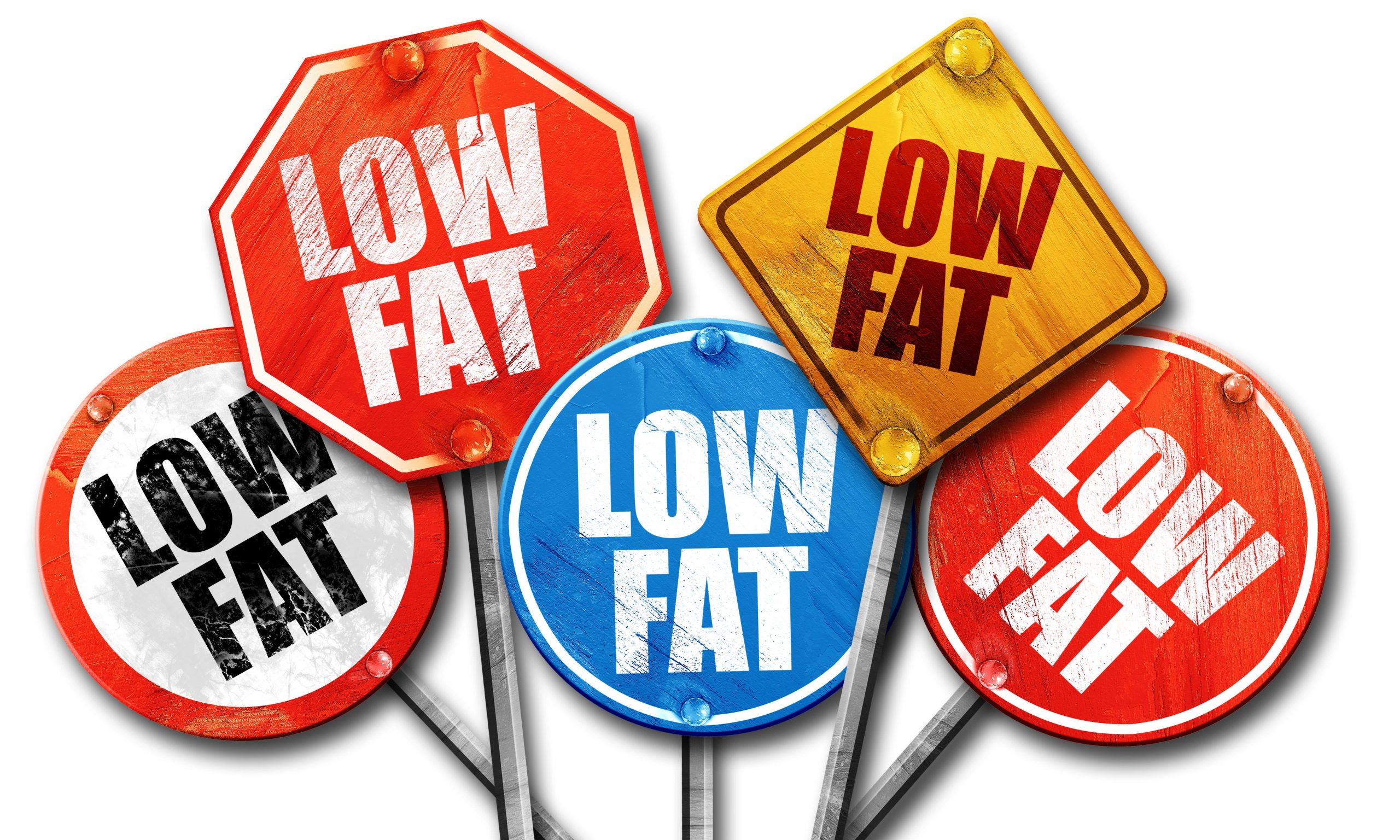As we wander the supermarket aisles, we are bombarded by flashy, stand-out labelling extolling the virtues of reduced fat, low fat or no fat products. These, marketeers would have us believe they support our busy lifestyles and are healthier. The surrounding ‘hype’ urging us to remove or reduce fat in our diet, leaves us with, dare I say, a view that fats are villainous. However, is this really true?
Straight away the notion of significantly lowering our fat intake to be healthy should be debunked. Fat is an essential micronutrient, important in supporting our cells, organs, blood clotting, muscle movement and aiding in the storage of energy and reducing inflammation. As well as providing essential insulation for those cold winter nights.
I hear you shout that all the ‘blurb’ articles and diets stating, if you eat fat you will get fat can’t be wrong. However, before you stop reading, hear me out. Fat contains a lot of flavour so when manufacturers remove or reduce the fat content, they may increase the use of sugar and other additives, making you want and buy more. Now let me think what does a manufacturer want you to do? ………………
Many nutritionists talk of eating whole (full fat) products such as yoghurts, full fat cheese, crème fraiche, sour cream, olive oil. Now I get the feeling some of you are staring at this page in abject horror, thinking this is bad on all sorts of levels. However, It’s the opposite whole full-fat products can fill you up faster, curb sugar cravings and are healthy to boot. Interestingly, whole full-fat doesn’t mean its laden with fat, it’s just how its naturally meant to be.
Ask yourself, if full-fat foods have been around for thousands of years, why are they, just now, being pilloried as the villain in the explosion of modern food epidemics?
So, what fats are good and support a healthy body and mind?, and what fats should we be aware of and minimise?
As a rule of thumb industrial made trans-fats are to be avoided, polyunsaturated and monounsaturated are good and saturated fats are somewhere in-between. Dr Carrie Ruxton a specialist dietician says “Fats are characterised by their molecular structure. Saturated is solid at room temperature, unsaturated fats are liquid and split into polyunsaturated and monounsaturated and generally thought to be good for our general health and well-being.
A process called hydrogenation is used to turn healthy oils into modified industrial trans fats, to stop them going off. These fats have been banned in the USA and globally there has been a push to reduce their use due to the potential risks of heart disease, their impact on cholesterol levels and insulin resistance which increases the risk of developing type 2 diabetes. Harvard Health said, “for every 2% of calories from trans-fat consumed daily, the risk of heart disease rises by 23%.”
Carrie says “…….. you can check product ingredient lists for ‘hydrogenated fats/oils’ which may contain trans fats. Takeaway foods are also a source, as high temperature heating of vegetable oil boosts the trans-fat content.”
Polyunsaturated include omega-3 fatty acids. These are fats you don’t want to do without, it is said they are essential for healthy brains, eyes and hearts. It’s even said they help combat depression and anxiety as well as our mental capacity as we age. Omega-3 can be found in some fish (salmon (preferably wild), mackerel, herrings, anchovies, sardines and tuna), as well as in some nuts and seeds. Whilst there are supplements, we should try to get most of our omega-3 from the food we eat.
Monounsaturated fats are a key ingredient in what is commonly termed the Mediterranean diet. A study called the seven countries study conducted in the 1960’s found that there was a low rate of heart disease in Greece and other Mediterranean countries, despite them having a high fat diet. Wonderful olive oils are a rich source as are most nuts and avocados as well as peanut and sunflower oils.
The ‘inbetweeners,’ saturated fats are common in both the European and American diet. Think of the grease left over from cooking say beef, lamb chops or bacon. Commonly we get these from oils such as coconut oil, red meat, milk (whole), cheese, dairy products and bakery goods. Reviewing two major studies Harvard Health concluded “that replacing saturated fat with polyunsaturated fats like vegetable oils or high-fiber carbohydrates is the best bet for reducing the risk of heart disease but replacing saturated fat with highly processed carbohydrates could do the opposite.”
Now what about the calories, all fats are energy intense and hence calorific. The recommendation is that no more than a third of your daily calories should come from fats. The government recommendations are that men should not exceed 97g of fat of which no more than 30g should come from saturates. For women this is 78g and 20g.
Hopefully I have shown it’s a myth that all fats are bad, and that as we age that we need enough of the good fats whilst doing everything we can to minimise the ones that are harmful. So, ditch the low-fat fad It could help you reduce weight, be healthier and more active, as well as possibly saving you money.
